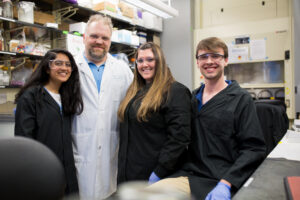By Katie Nash, UNC Health Foundation
Throughout the COVID-19 pandemic, UNC Health and the UNC School of Medicine’s top physicians and researchers have worked tirelessly to find answers, notably through vaccine research and therapeutic development. While these discoveries have brought us closer to a world without COVID-19, a growing volume of evidence suggests the effect of the virus on health and wellness can last much longer than infection, and in unexpected ways.
The McAllister Heart Institute (MHI) at the School of Medicine received generous funding to study the effects of SARS-CoV-2, the virus that causes COVID-19, on the cardiovascular system and its potential links to heart failure. The institute is the principal research center for cardiovascular disease at the SOM, named in 2009 for Hugh A. “Chip” McAllister Jr., MD ’66, after he made the largest-ever single gift to cardiovascular research at the School.

After his death in 2018, McAllister’s family foundation continued to support the institute’s work and recently designated $100,000 for COVID-19-related cardiovascular research.
“We feel very fortunate and grateful to have had Chip McAllister and now his family foundation interested and invested in the work that we’re doing,” said Victoria Bautch, PhD, Co-Director of McAllister Heart Institute. “He was our biggest cheerleader.”
Kimberley McAllister, Chip’s daughter and president of the McAllister Charitable Foundation, stressed that now is the time to invest in emerging needs during the pandemic.
“We pivoted to support COVID-19 research because it is clear that COVID infection can cause lasting damage to the heart and blood vessels, but little is understood about how COVID causes this damage and why it occurs in only a subset of those infected,” McAllister said. “The need for answers and treatments to prevent these devastating outcomes from infection is overwhelming. My father’s vision was to stimulate discoveries that would lead to better treatments for the people of North Carolina by supporting innovative, multi-disciplinary research and training. Our foundation has extended this vision to focus on research aimed at improving lives and mitigating health disparities for women and minorities”
“A Much Larger Burden”
Jonathan Schisler, PhD, is at the forefront of MHI’s research into the long-term impacts of COVID-19 on cardiovascular health.
“The initial push for COVID-19 research was obviously viral treatment and vaccine development, which is not my background,” Schisler said. “But as more and more data came out about virus ‘long haulers’ and evidence of cardiovascular damage, it became clear that this disease was not limited to the respiratory system.”
Considering the scope of the population that will likely become infected with the virus at some point, Schisler said that there are numerous concerns regarding the long-term effects. His team’s research priority is understanding what exactly the virus does in the cardiovascular system that leads to damage and increased rates of heart failure.
“In the coming years, this could be a much larger burden on our health system than many realize,” Schisler said. “I don’t think I’ve ever been involved in anything with this much uncertainty. We generally know what happens with conditions like heart failure and high blood pressure, but this is a new frontier with no baseline knowledge. It’s both fascinating and very challenging.”
Using patient samples from UNC Health’s intensive care unit, Schisler and his team are identifying molecules that circulate in the blood and correlating these biomarkers with severity of cases.
“One of the things that we recognized early on was the impact that SARS-CoV-2 has on circulating RNA – one of the ‘building blocks’ for DNA and cells that circulate in the blood and other fluids,” Schisler said. “We’ve found some microRNAs that are involved with the pathogenesis of COVID-19. We don’t know if this is something the virus hijacks or if it’s a response from the body itself – but we found that these microRNAs are changed in response to the virus and circulating throughout the body.”
Schisler is focused on a small set of these microRNAs that appear to target the ability of the body’s cells to generate energy through the mitochondria.

“We think these microRNAs’ circulation throughout the body and their attack on energy production has a lot to do with some of the peripheral effects of COVID-19 infections,” Schisler said. “This is how the virus could cause heart damage while mainly living in the respiratory system.”
Some parts of the body cannot take any time off – like the heart. As a huge and constant consumer of energy, defects in energy generation make the heart much more prone to failure. Schisler and his team have already moved into pre-clinical models to study whether using inhibitors for these microRNAs reduces cardiovascular complications and overall infection severity.
“Experts for Everything”
Schisler said that the cross-disciplinary work happening with COVID-19 has been unprecedented and invigorating.
“I’ve never seen something happen so quickly – we started collecting samples and ramped up the whole research system in just a couple of months,” Schisler said. “It’s been a very ‘we’re all in this together’ attitude with data sharing and biobanking across disciplines. It’s been remarkable to work with a whole new set of people at UNC that I didn’t even know a year ago – and now we’re all in.”
Moving forward, Schisler wants to study former COVID-19 patients – particularly long haulers – using genetic profiling and physiological measures to evaluate their cardiac function.
“The more information we get on these biomarkers, the more we can tie to how this virus is impacting different people in the long term, and then we can hopefully develop some preemptive countermeasures.”
Schisler says health disparities and outcomes can be particularly challenging to study, from socioeconomic to biologic factors. His team’s past work has found genetic differences in immune responses in different ethnicities and populations linked to cardiovascular disease, and now looks to continue collaboration across campus to apply this area of study to COVID-19.
“That’s an advantage of being at UNC – we have experts for everything. One of the greatest silver linings is working with so many researchers I perhaps never would have connected with otherwise. The collaboration happening across campus has opened the doors to some really transformative research.”
Schisler also stresses how his lab’s unique approach of training both graduates and undergraduates increases efficiency in studying COVID-19 while also building a program and pipeline.
“If anyone wants to know the impact of their donation, just look at these hard-working students. It’s the next generation of incredible minds, and they’re going to do great things. It’s not just me or my career and research that has been aided by this – having these extra dollars and these projects is what got these kids excited and into science, and they’re blazing paths.”
“A Tangible Product”
As an accomplished scientist herself, McAllister says philanthropy is essential for research labs to be able to quickly respond to emerging needs, such as the cardiovascular effects of COVID-19.

“Funding from governmental sources fuels the research in all of our labs, but grant applications require substantial initial data showing our projects are promising and likely to succeed,” McAllister said. “That preliminary data costs a lot of money to generate and there are few sources for pilot grants to launch new projects. Philanthropy aimed at pilot grant funding is the perfect way to provide opportunities for labs to move in a new direction and obtain that preliminary data for larger grants. This kind of investment will pay off many-fold in the much larger grant funding it will allow the MHI investigators to bring in to study these important topics in the future.”
Bautch emphasizes that the discoveries made today through charitable dollars will have effects reaching far beyond the research lab.
“If we understand the disease and can devise ways to mitigate the complications, we will also be helping to tackle very prominent health disparities, particularly with women and minorities. It is so important to be able to pivot and do bold things in a short amount of time versus several years. Time is of the essence – especially in a pandemic.”
Bautch and her team at MHI take pride in making their day-to-day work and impact clear to donors.
“We haven’t just taken your money – we will show you what we’ve done with it and why it’s important,” Bautch said. “We will follow through and demonstrate a tangible product of philanthropic investment – and show that you will have an impact on the outcome.”
“Our hearts go out to the many families in North Carolina who have lost loved ones to COVID-19,” McAllister said. “We know that the remarkable doctors and innovative researchers at MHI are working tirelessly to learn about this new disease and discover new treatments — we sincerely hope that our gift will contribute to breakthroughs that will ultimately improve the lives of the most vulnerable and hard-hit North Carolinians.”
To make a gift to the McAllister Cardiovascular Research Fund, click here.
For more information on how to support this initiative, please contact Brian Frerking, Director of Development, at brian_frerking@med.unc.edu.

One Response to “McAllister Heart Institute Pivots to COVID-19”
Vickie Bayliss
Any need for study participants recovered from covid-19, but now with severe PVC’s.